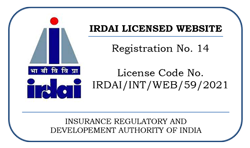Life insurance differs from health insurance as it offers financial protection to your family in the event of your death, rather than coverage for medical expenses. It serves various purposes and comes in different forms, making it essential to select the right policy. Opting for the best life insurance policy in India can be a daunting task, considering the abundance of options available. In this article, we will explore crucial factors to consider when choosing a life insurance policy, providing you with comprehensive details to simplify your decision-making process. By consolidating all the necessary information in one place, we aim to assist you in finding the ideal life insurance policy for your needs.



